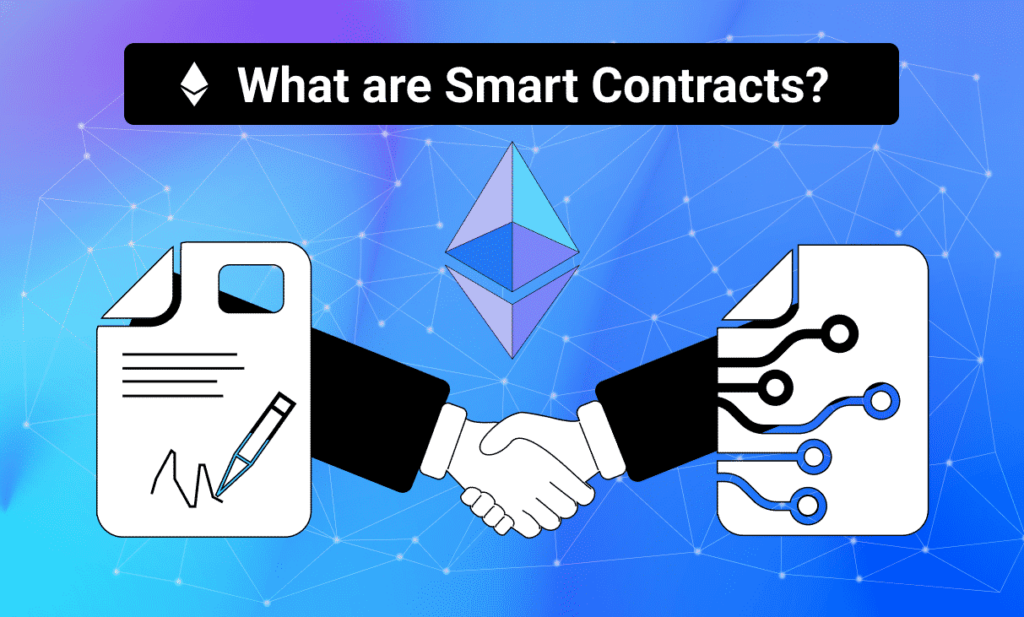
A smart contract is a self-executing contract with the terms of the agreement directly written into code. It operates on a blockchain network and automatically executes actions when predefined conditions are met. Smart contracts enable trustless and decentralized transactions, as they are executed according to predetermined rules without the need for intermediaries.
Here’s a breakdown of what smart contracts are and what they do:
- Self-executing: Smart contracts automatically execute actions when specific conditions are met, without the need for human intervention. Once deployed on the blockchain, they operate autonomously and enforce the terms of the contract without relying on external parties to oversee or facilitate transactions.
- Code-based: Smart contracts are written in code, typically using programming languages like Solidity for Ethereum or Chaincode for Hyperledger Fabric. The code specifies the rules, conditions, and actions of the contract, including the parties involved, the terms of the agreement, and the actions to be taken upon fulfillment of conditions.
- Transparency and Immutability: Smart contracts operate on a blockchain network, providing transparency and immutability of transactions. Once deployed, smart contracts are recorded on the blockchain and cannot be altered or tampered with, ensuring the integrity and security of the contract’s execution.
- Decentralization: Smart contracts are executed on a decentralized network of nodes (computers) that validate and record transactions on the blockchain. This decentralization eliminates the need for centralized intermediaries, such as banks or legal institutions, and reduces counterparty risk in transactions.
- Use Cases: Smart contracts have a wide range of use cases across various industries, including finance, supply chain management, real estate, healthcare, and more. Examples include automated payment agreements, decentralized finance (DeFi) protocols, supply chain tracking, tokenization of assets, and decentralized autonomous organizations (DAOs).
- Trustless Transactions: Smart contracts enable trustless transactions by ensuring that contractual agreements are executed as programmed, without relying on trust between parties. This reduces the risk of fraud, manipulation, and human error, as the outcome of transactions is determined by code and consensus mechanisms rather than subjective interpretation.
In summary, smart contracts are self-executing contracts with predefined rules and conditions written into code. They automate and enforce the terms of agreements, enabling trustless and decentralized transactions on blockchain networks across various industries and use cases.